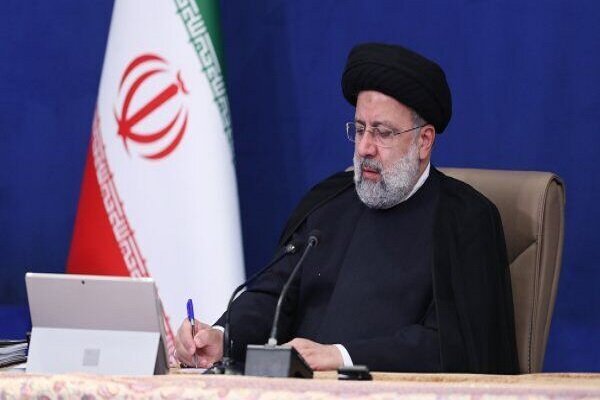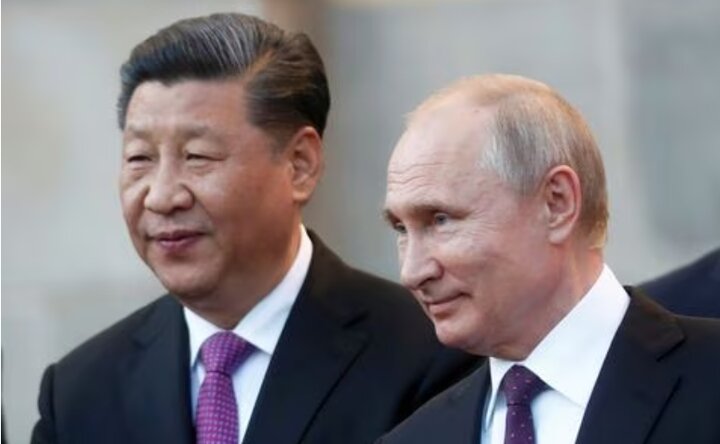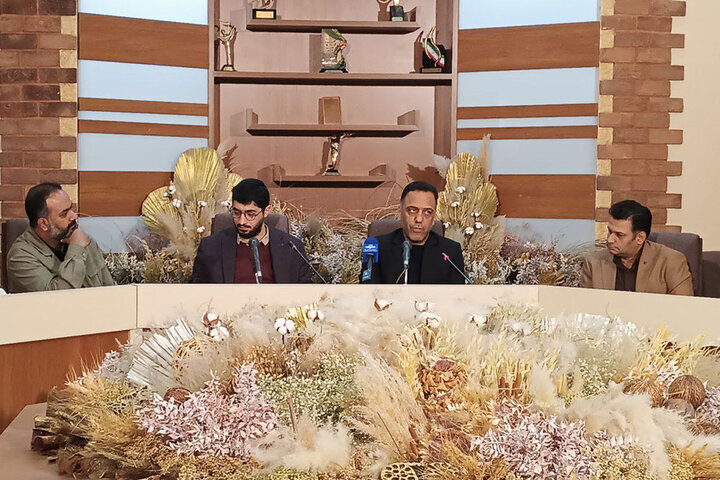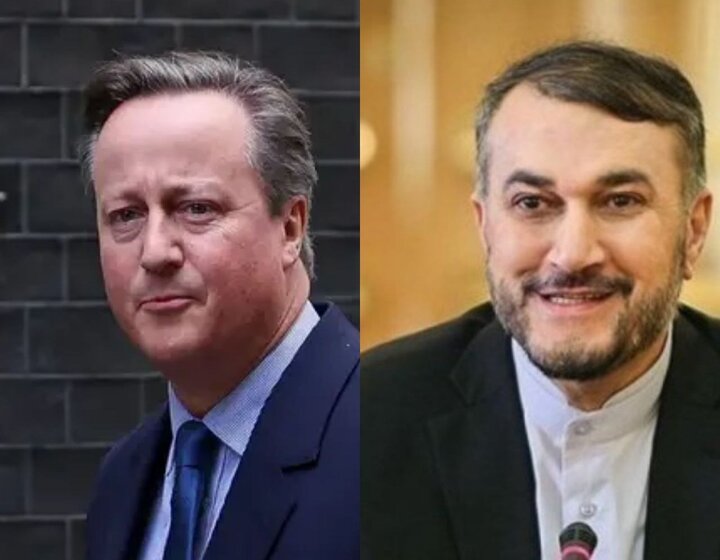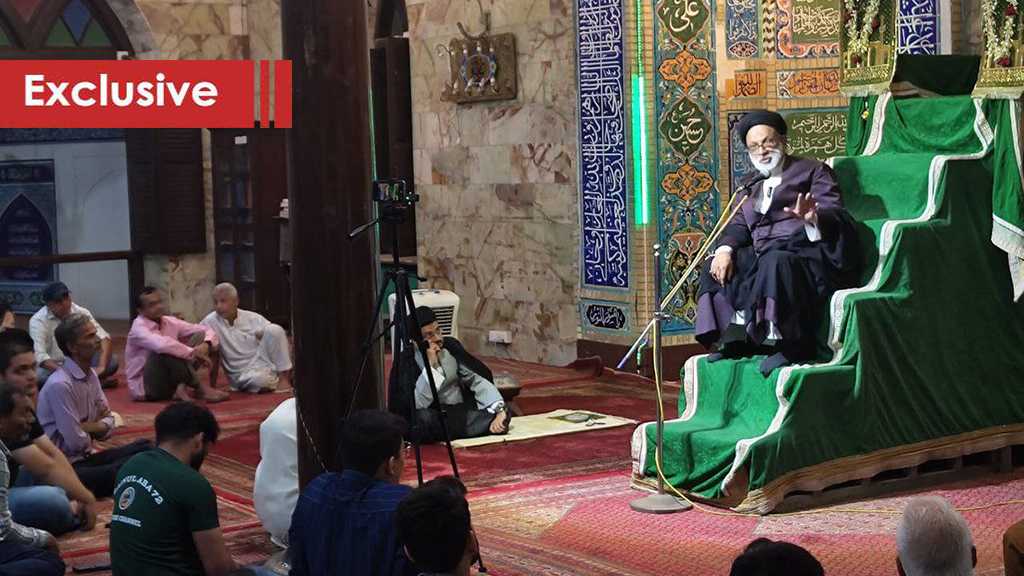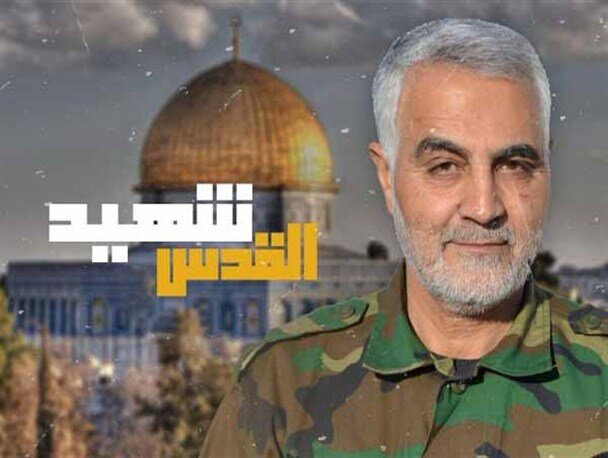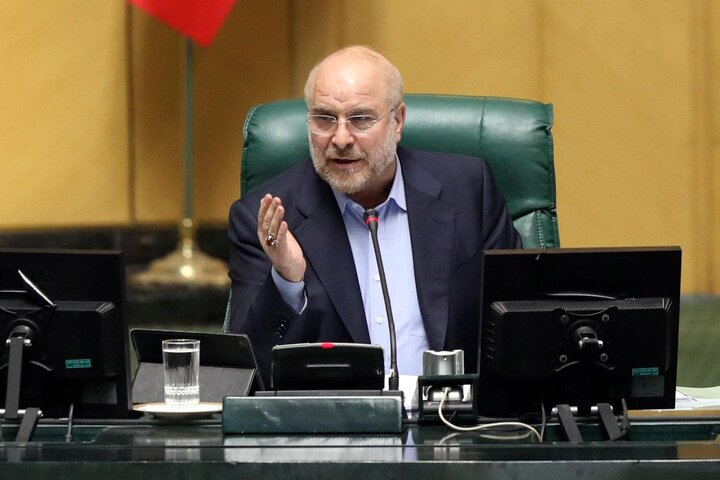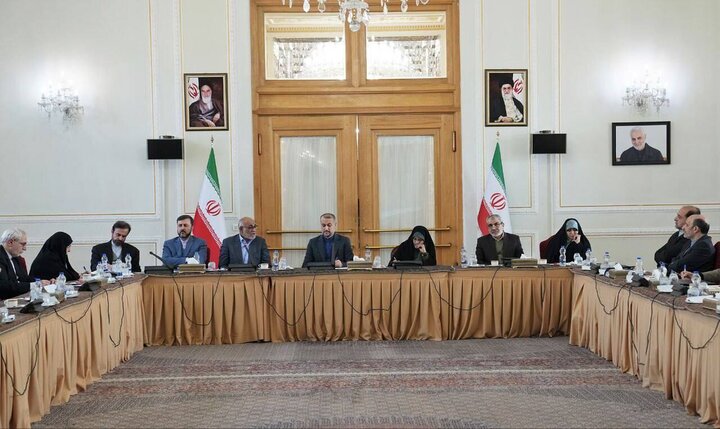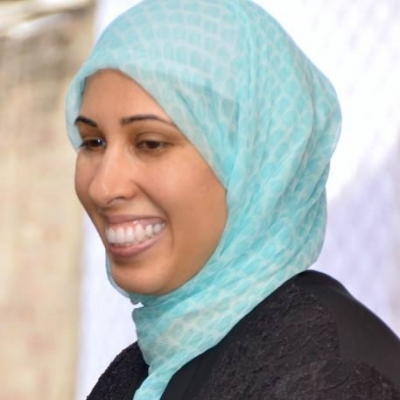 Salina Khan
Salina Khan
“It’s easier to fool American Muslims on Syria than it is to convince them that they have been fooled” is my twist on a saying attributed to Mark Twain. I learned this the hard way after trying to enlighten friends who were foaming in the mouth for regime change in Syria after drinking imperialist Kool-Aid served up in the mainstream media day and night.
It’s been seven years since conflict first broke out in Syria and piles of evidence have surfaced to destroy the mainstream narrative that Syrian President Bashar al-Asad is a “butcher” who is “killing his own people” to stay in power and “must go.” Articles, interviews, whistleblowers, and evidence on the ground in Syria definitively show that Western powers and their Israeli, Arabian, and Turkish allies are playing out plans hatched decades ago to bring a more compliant regime in Syria by financing, training, and arming insurgents, whom they affectionately call “moderate rebels,” on the ground while dropping bombs from above.
More people around the globe are waking up to the lies, especially after regime-changers’ claims of chemical weapons attacks by Syrian government forces fell apart again in April. While the majority of Syrian people have always supported al-Asad — 55% of Syrians wanted their president to stay in a 2012 poll commissioned by the Qatar Foundation — even rebel groups in Syria as well as many academics, journalists, activists, and ordinary folks worldwide are recognizing that the so-called “Syrian Civil War” is actually a continuation of imperialist designs to destroy and conquer Muslim lands. Tucker Carlson, conservative political commentator for Fox News, did scathing segments in April challenging the dominant narrative and drive to war against Syria.
But there’s one group of people that remains generally and hysterically faithful to the false narrative: American Muslims. They insist that al-Asad is a “pharaoh” and has been murdering Syrians, including gassing children, to hold on to power after peaceful demands for political change erupted in 2011. Even France, a former colonizer of Syria and one of the main architects of this war, said in early May that al-Asad’s ouster is no longer a prerequisite for a political solution. But the majority of American Muslims remain adamant that “al-Asad must go,” whether through insurgents, military strikes, or even assassination.
There’s a reason why war propaganda has especially taken root in the hearts of most American Muslims: their political, religious, and social sources of information are manipulated by the war machine. For seven years American Muslims have been bombarded by three sources of misinformation: media, masjids, and Syrian Americans. Attempts to engage in dialogue with them undoubtedly trigger emotional outbursts and personal attacks, making any type of civil discussion and critical analysis moot.
Here’s a comment I got on Facebook from a relative when I posted a video doubting claims that al-Asad used chemical weapons,
Wow, just speechless… The entire world knows innocents who are NOT terrorists are being slaughtered by your favorite murderer Asad, and all you want to do is propagate your fake news that is fueled by your own political religious agendas… Anyone can sit on the internet and find ridiculous “support” for their even more insulting and ridiculous ideology… Don’t forget you are a mother. Just try to imagine what if it were you or [yo]ur children…
[More:] How can anyone believe such lies and “fake news” when we know people who have personally traveled for the sake of humanity to volunteer in refugee camps and have seen and heard firsthand stories of the horrors from survivors??? From the relatives here, who are Syrian friends we all know and trust for decades, tell[ing] their stories of loved [ones] and friends being slaughtered in unspeakable ways? They are all liars? Also not to mention documentary films that everyone should see regarding White Helmets.
It is disheartening to see that even after the US has been exposed over and over for lying to the public to gain support for wars in Iraq, Afghanistan, and Libya, American Muslims have wholeheartedly swallowed Syria war propaganda. To understand how this happened, let us take a closer to look at the sources of misinformation.
Mainstream Media
“Coverage of the Syrian war will be remembered as one of the most shameful episodes in the history of the American press,” according to Stephen Kinzer of Brown University. “Much of the American press is reporting the opposite of what is actually happening.” Even before the insurgency in 2011, the US mainstream media had been psychologically conditioning the public for regime change operations in Syria through predictive programming (see CNN’s Christiane Amanpour’s interview with al-Asad in 2005 where she says, “Mr. President, you know the rhetoric of regime change is headed toward you from the United States”).
The American media has always served as an outlet for war propaganda (“Remember the Maine!”) but in 2012 Congress repealed the ban on propaganda to the American public and agendized programming went into overdrive. The most egregious example of war propaganda posing as journalism is the Oscar-winning documentary “The White Helmets” about an organization of Syrian “rescuers” founded by a former British army officer and military contractor and funded by USAID as well as the British Foreign Office. In recent weeks the White Helmets have seen a reversal of fortunes, thankfully, as their chemical attack claims in Douma fell apart and Trump initiated a freeze on US funding for them.
Muslims may have seen through the Syria war propaganda had the “Muslim” media not been echoing the same views as its Western counterparts. Indeed, Saudi Arabia, Qatar, and Turkey are equally involved in efforts to oust al-Asad and their press reflect that bias. The government of Qatar has paid billions of dollars to the “rebels” fighting to bring down al-Asad and uses its media arm, al-Jazeera, to bolster them. In 2012 a string of prominent al-Jazeera journalists quit the broadcasting outlet for biased reporting and agenda-setting in Syria. Even the media in Pakistan, officially neutral in the Syrian crisis, showcases virulently anti-Iran political commentators like Orya Maqbool Jan who regularly ignites hatred in the hearts of Pakistanis toward al-Asad and allies Iran and Hizbullah (see Neo TV’s videos “Orya Maqbool Jan Visit to Sham and Halab” and “Orya Maqbool Jan Views on Syria” on YouTube).
Masjids
When Germany needed Muslims to support war against the Allies in World War I, it opened up masjids in Muslim refugee camps and encouraged Muslims to faithfully adhere to their Islamic rituals, including attending Jumu‘ah congregation prayers where sermons were used to politically influence the worshippers. Americans continued that trend beginning in the 1970s by ordering Saudi Arabia to open up masjids and madrasahs in America and around the world, according to Saudi Crown Prince Muhammad bin Salman’s own admission in March, which would preach a version of Islam compatible with US interests. Today those masjids shape Muslims’ political views regarding Syria and other issues through sermons, speakers, and programs. Many house imams are even educated and trained in Saudi Arabia.
After 9/11, American security and intelligence agencies gained even tighter control over masjids by establishing advisory councils made up of masjid leaders and FBI agents as well as through a network of paid agents. Government control over masjid affairs has gotten so out of control that a former intelligence director at the New York police department, Samuel Rascoff, wrote an article in 2012 in the New York Times entitled “Uncle Sam Is No Imam.” Since 2011, masjids have used the minbars to propagate contempt for al-Asad and his allies, such as Yasir Qadhi’s 2012 khutbah “Syria Crisis: O Bilaad al-Sham! You are in our hearts!!” Masjids in Chicago, Tampa, Los Angeles, and Detroit invited self-exiled Syrian scholar Shaykh Osama al-Rifai, whose masjid in Damascus was the main hub for anti-Asad demonstrators in the early days of the insurgency, to raise money for Syrians through the Syrian Sunrise Foundation.
To add fuel to the fire, warmongers tried to make the Syrian conflict into Shi‘i vs. Sunni (alleging al-Asad belongs to the Shi‘i minority ‘Alawi sect; for the record he has become a Sunni) to gain more support from Sunnis, and some masjids like the one in my town jumped in with two feet. The imam of our masjid gave a 2-hour lecture during a wedding ceremony on the “(dis)beliefs” of Shi‘is, mentioning things so absurd I don’t even remember them.
Syrian Americans
Too many people base their political understandings of complex foreign affairs on the opinions of “aunties” and “uncles” who grew up in those countries. But people who left their homeland, culture, and families decades ago for the American land of opportunity — regardless of how profusely they pray, fast, and read the Qur’an — are not reliable sources of information. If esteemed Companions of the Prophet (pbuh) could later regret who they supported during wars of fitnah, couldn’t our dear aunts and uncles be confused now?
“Most Syrians in the West who are today’s pro-opposition activists are descendants of Syrian and Egyptian-expelled Muslim Brotherhood families or they are ex-aristocrats who lost their lands due to socialist policies in the 1950s and 60s,” according to a 28-year-old Syrian who spoke with independent journalist Rania Khalek. “Now they speak out against the government from the safety of America.”
While Syrian-Americans are free to hate al-Asad for whatever reason, they must not knowingly or unknowingly become public relations tools for war hawks by giving legitimacy to and spreading support for their military exploits in Syria. The Syrian American Medical Society (SAMS), funded by USAID and led by an ardent opponent of al-Asad and Iran, has been a major source (along with the White Helmets) of disinformation regarding alleged chemical attacks by the Syrian government. SAMS put out a press release on April 8 claiming that 500 people suffering from chemical attack-like symptoms were brought to medical centers in Douma and six of them died (Douma witnesses, however, said there was no chemical attack, weapons, or victims during a Organization for the Prohibition of Chemical Weapons briefing in the Netherlands in late April). After Trump attacked Syria for allegedly using chemical weapons, another advocacy group, the Syrian American Council, was all over the media justifying Trump’s bombing campaign and encouraging further military action through a no-fly zone.
With America on a war rampage in the Muslim East, American Muslims have a huge responsibility to understand the reality of world politics so they can stop further death and destruction — surely not become part and parcel of it. As confused as American Muslims are regarding Syria, the basic thing they must do is correct their sources of information. They must turn to alternative and independent journalists instead of mainstream media, free masjids and minbars of government influence to allow critical discussions, and listen to the people living in the countries being bombed, not those who left them decades ago for personal advancement in the US.
If we don’t do this, American Muslims will soon find themselves cheerleading the destruction of another Muslim country, this time the Islamic Republic of Iran. Trump just tore up the nuclear agreement reached with Iran under the Obama administration, paving the way for increased hostilities. He is supposedly “committed to regime change” in Iran according to his attorney Rudy Giuliani (who recently attended two conventions organized by Iranian terrorist group the Mujahideen-e Khalq Organization in Washington and Albania), and recently surrounded himself with other Iran war hawks like National Security Advisor John Bolton and Secretary of State Mike Pompeo. Those who don’t see another war on the horizon are living in a fool’s paradise.
(First published in 2018-06-01)
United StatesAmerican MuslimsMasjidSyria




